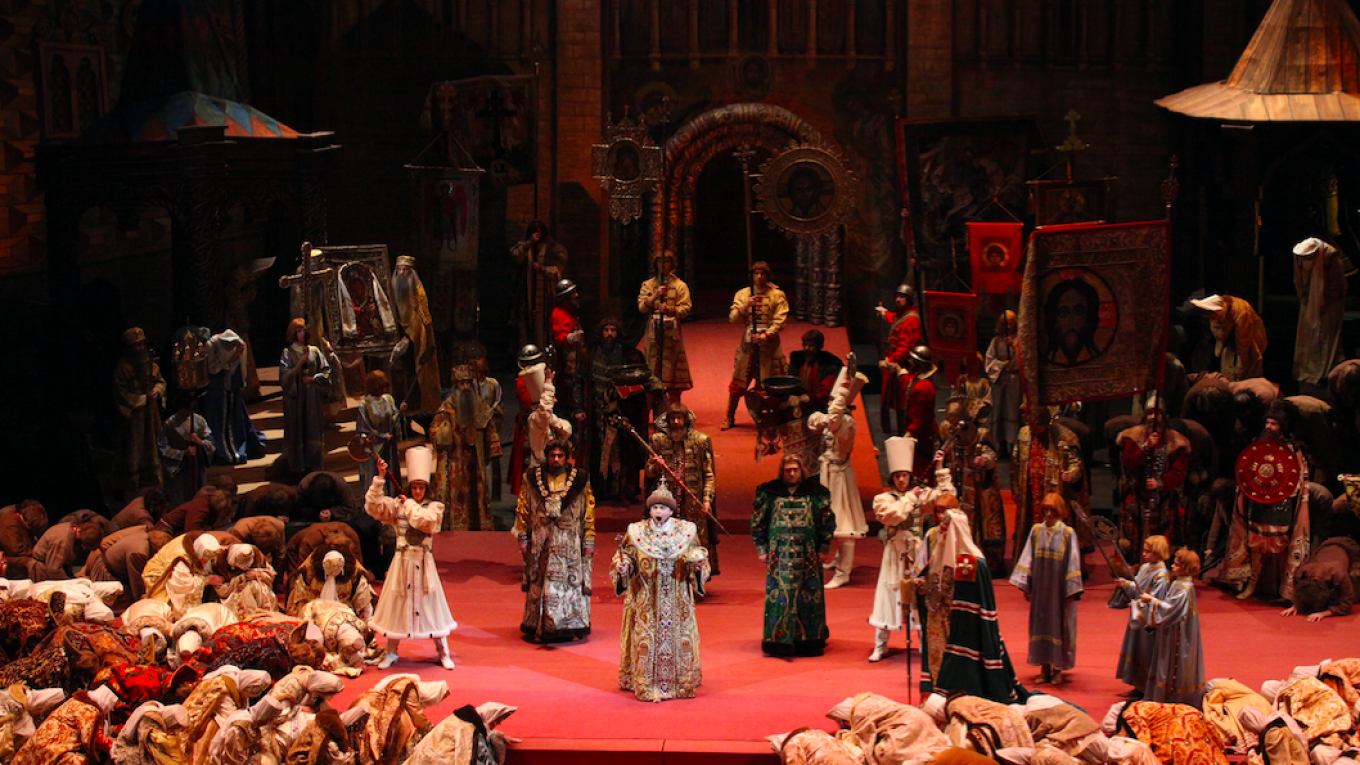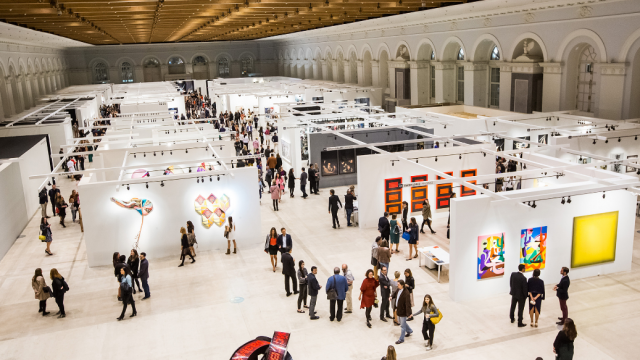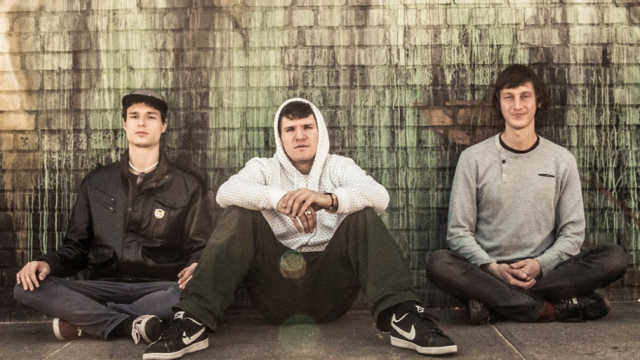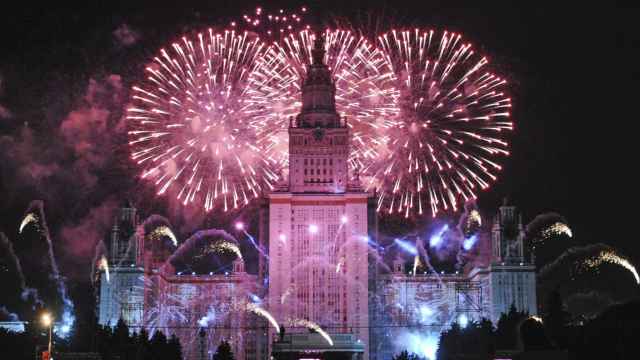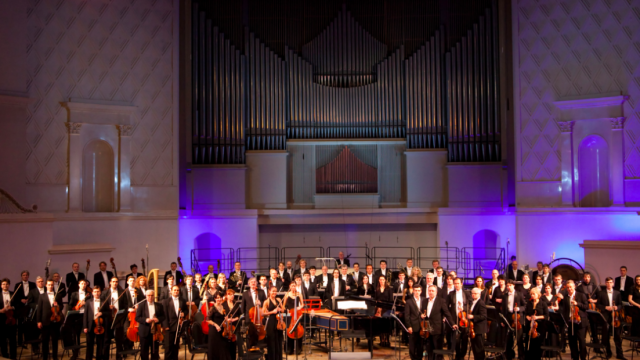The Bolshoi Theater
re-opens on September 10 for a 241st season that, when it comes to
additions to its operatic repertoire, promises to be its most adventurous in
post-Soviet times. On its schedule are four new productions of opera, three of works never before
staged in Moscow. The
theater will also play host to four guest opera troupes from both Russia and
abroad.
A Host of Guest Troupes
Prior to its traditional season-opening performance of Modest Mussorgsky’s opera “Boris Godunov” on September 19, the Bolshoi welcomes to its Historic Stage soloists, orchestra and chorus of Milan’s Teatro alla Scala, marking the renowned Italian theater’s tenth appearance at the Bolshoi since its sensational debut there in 1964. Leading off will be the first of three performances of Giuseppe Verdi’s dark and brooding opera, “Simon Boccanegra, set in 14th-century Genoa, which features Leo Nucci, one of Italy’s leading baritones for nearly half a century, in the formidable title role and esteemed Korean conductor Myung Whun-Chung in his Moscow operatic debut.
Italian maestro Riccardo Chailly, music director of Teatro alla Scala since last season, completes the theater’s guest appearance leading two performances of Verdi’s familiar Requiem and a concert program of vocal and orchestral music by Verdi, Gioacchino Rossini and Luigi Cherubini. The same program received much acclaim when performed last month at the Salzburg Festival in Austria.
Less than two weeks after the departure of Teatro alla Scala, the Bolshoi’s New Stage plays host to St. Petersburg’s enterprising theater Zazerkalye (“Through the Looking Glass”), which in the course of five days will present no less than seven operas: Giacomo Puccini’s “Madama Butterfly,” a double-bill of Wolfgang Amadeus Mozart’s “Der Schauspieldirektor” and Puccini’s “Gianni Schicchi,” a pair of comic operas by Gaetano Donizetti, his seldom-heard “La gazzetta” and familiar “L’elisir d’amore;” “The Tale of the Nightingale, the Emperor and Death,” based on a story by Hans Christian Andersen and set to traditional Chinese music, and Benjamin Britten’s “Noah’s Ark,” an opera for children.
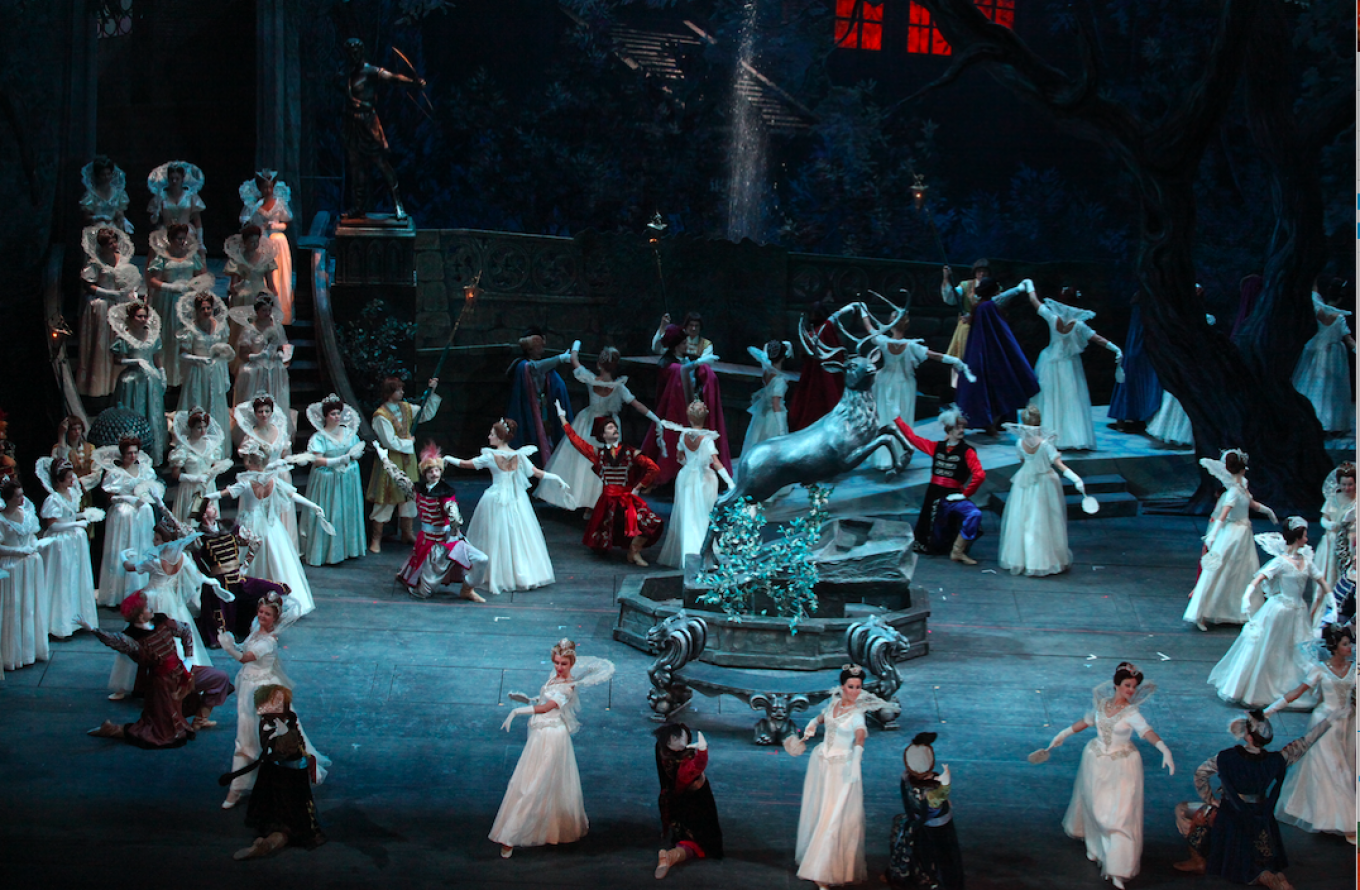
Bolshoi Productions
The Bolshoi’s own parade of new opera productions begins on October 16 at the Historical Stage, with what, as best I can determine, will be the first Moscow staging of Puccini’s initial operatic success, “Manon Lescaut,” a marvelously lyrical work — and my own favorite among the composer’s operas. Likely to cause something of a sensation will be the scheduled Bolshoi debut of glamorous Russian soprano Anna Netrebko in the opera’s title role.
Staging “Manon Lescaut” will be the highly-respected Ukrainian-born director Adolf Shapiro, whose Golden Mask Award-winning production of Donizetti’s “Lucia di Lammermoor” continues to delight audiences at the Stanislavsky and Nemirovich-Danchenko. Making his Bolshoi debut, together with Netrebko and Shapiro, will be young Italian conductor Jader Begnanini.
Up next, on November 25 at the Bolshoi’s New Stage, will be Britten’s “Billy Budd,” an opera based on a short novel by Herman Melville of the same name that tells a gripping tale of intrigue and injustice aboard a British man-of-war in combat with the French at the end of the 18th century. Premiered in London in 1951, “Billy Budd” has subsequently enjoyed much success throughout the operatic world and finally reached Russia four years ago in a production at St. Petersburg’s Mikhailovsky Theater.
The Bolshoi’s “Billy Budd” comes from London’s English National Opera, in a highly praised staging by innovative American director David Alden, who has moved the opera’s action forward in time to the first years of the 20th century.
Britten underpinned Melville’s tale with one of his most powerful and compelling scores. In charge of the music at the Bolshoi will be British conductor William Lacey, well-remembered in Moscow for his leading the Stanislavsky and Nemirovich-Danchenko’s Golden Mask Award-winning production of another Britten opera “A Midsummer Night’s Dream,” which also originated at the English National Opera.
“Billy Budd” is played by an all-male cast and chorus, both of unusually large proportions, and will be sung in the original English, which presents the Bolshoi with a serious challenge. Although, in line with its recent practice, the theater will probably import native speakers for at least some of the opera’s principal roles, the bulk of the singing will be entrusted to local voices.
What I have previously heard in Russia of opera in English has generally been marred by extremely poor diction. In the case of “Budd Budd, where the words are of prime importance, perhaps the Bolshoi will manage to prove an exception and come up with a linguistically well-coached cast.
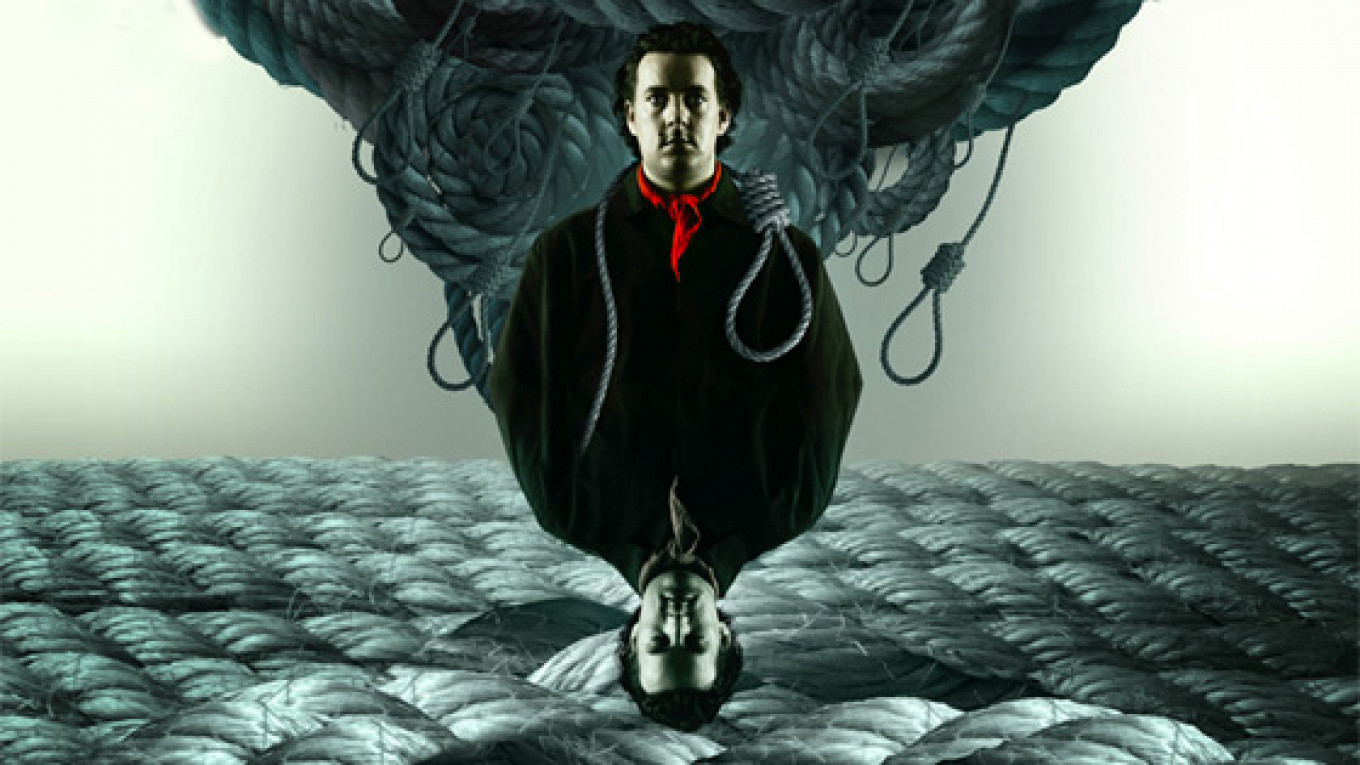
Celebrating a Forgotten Genius
From the end of January through February of next year, Moscow audiences are due to become acquainted for the first time with fully-staged performances of operas by the long-neglected Polish-born composer Meczyslaw Weinberg, in productions not only by the Bolshoi, but also Moscow’s Novaya Opera Theater and Yekaterinburg’s Ural Theater of Opera and Ballet.
Following the German invasion of Poland in 1939, the then 19-year-old Weinberg fled to the Soviet Union, ending up in Moscow, where he remained until his death in 1986. Weinberg’s talent as a composer was soon recognized by Dmitry Shostakovich, who did much to encourage and influence him. Performances of Weinberg’s prolific output of orchestral, chamber and solo piano music and seven operas was largely suppressed in Soviet times. But over the past two decades, he has increasingly gained recognition as one of the most important composers active in Russia during the 20th century.
Weinberg’s first opera, “The Passenger,” dating from 1968, centers on the relationship of a prisoner and a guard in a Nazi concentration camp and their chance encounter aboard a cruise ship shortly after the end of World War II. Its world premiere 10 years ago proved a resounding success as performed semi-staged by the Stanislavsky and Nemirovich-Danchenko. Fully-staged, the opera has gone on to receive an enthusiastic reception in Austria, Germany, Britain and the United States.
In mid-September, the Ural Theater of Opera and Ballet is scheduled to give “The Passenger” its long-overdue first full-scale Russian staging in Yekaterinburg and, on February 10, will bring the production to Moscow for a single evening at the Bolshoi’s New Stage. Just two weeks earlier, Novaya Opera plans to present its own version of “The Passenger.”
The Bolshoi pays its tribute to Weinberg with his final opera, “The Idiot,” on February 25 at the New Stage. Based on Fyodor Dostoevsky’s novel of the same name and completed shortly before the composer’s death, “The Idiot” has previously been seen only at its world premiere three years ago in Mannheim, Germany, and in a production that premiered last July at St. Peterburg's Mariinsky Theater. In charge of the music will be Polish conductor Michal Klauza, who last April successfully led the Bolshoi’s new production of Donizetti’s “Don Pasquale, with the staging entrusted to veteran Moscow-born Israeli director Yevgeny Aryeh.
Unlike its three predecessors, the final operatic premiere of the season is a work well-known to Moscow audiences, Nikolai Rimsky-Korsakov’s “The Snow Maiden.” The upcoming production, which opens on June 15 at the Historic Stage will be the Bolshoi’s eighth since the opera first appeared there in 1883, the most recent of which was a rather heavy-handed affair that served to open the theater’s New Stage 15 years ago.
Its libretto based on a play of the same title by Alexander Ostrovsky and re-telling one of Russia’s best-known folk tales, “The Snow Maiden” contains some of Rimsky-Korsakov’s most fetching melodies, but also long stretches of tedium, both musically and dramatically. Perhaps imaginative efforts on the part of director Alexander Titel, the head of opera at the Stanislavsky and Nemirovich-Danchenko and a masterful interpreter there of other Rimsky-Korsakov operas, and of Bolshoi music director Tugan Sokhiev will manage to breathe life into at least some of those stretches.
The Bolshoi, of course, is not the only operatic player in town. But its four rivals, the Stanislavsky and Nemirovich-Danchenko, Novaya Opera, Helikon Opera and the Pokrovsky Chamber Musical Theater, from all of which interesting things can be expected, have yet to fully disclose their plans for the upcoming season.
For more information see bolshoi.ru
A Message from The Moscow Times:
Dear readers,
We are facing unprecedented challenges. Russia's Prosecutor General's Office has designated The Moscow Times as an "undesirable" organization, criminalizing our work and putting our staff at risk of prosecution. This follows our earlier unjust labeling as a "foreign agent."
These actions are direct attempts to silence independent journalism in Russia. The authorities claim our work "discredits the decisions of the Russian leadership." We see things differently: we strive to provide accurate, unbiased reporting on Russia.
We, the journalists of The Moscow Times, refuse to be silenced. But to continue our work, we need your help.
Your support, no matter how small, makes a world of difference. If you can, please support us monthly starting from just $2. It's quick to set up, and every contribution makes a significant impact.
By supporting The Moscow Times, you're defending open, independent journalism in the face of repression. Thank you for standing with us.
Remind me later.


